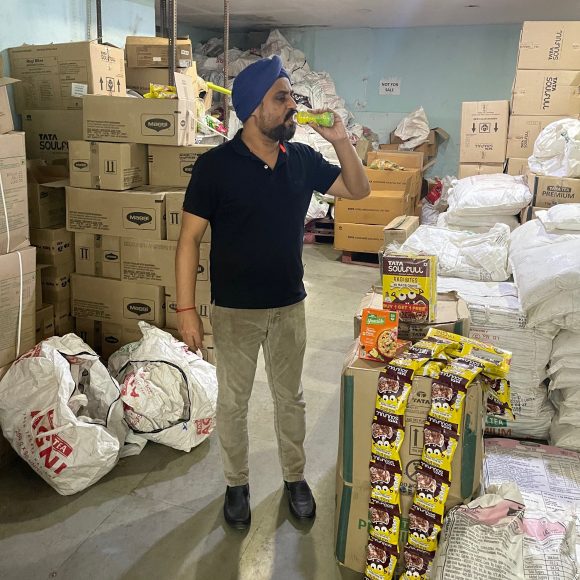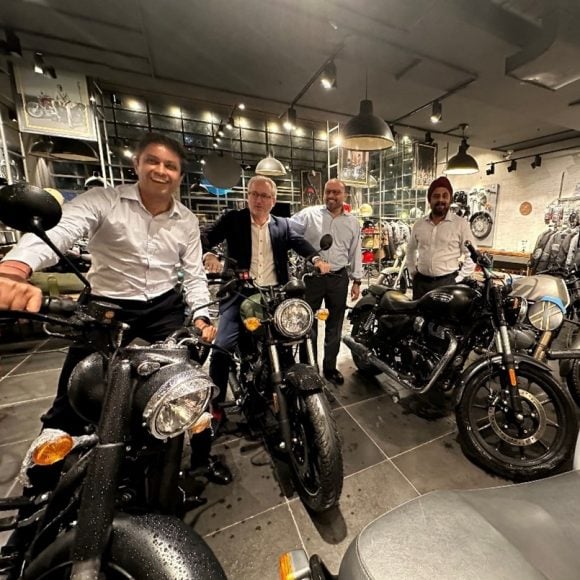India: “A right to win”
The latest in our Asian Street View series takes us to India.

![]()
header.search.error
The latest in our Asian Street View series takes us to India.
A few of us in the emerging market equity team spent a couple of weeks in India towards the end of last year. We travelled across Bangalore, Mumbai, and Delhi NCR region, meeting with companies and experts, as well as conducting channel checks.
Optimism levels were high, with recurring themes being the China +1 diversification strategy being adopted by multinational companies, coupled with a pick up in infrastructure investments and government intent to make India into a manufacturing hub. Less positively, tech start-ups face a funding crunch with private investment deals dwindling sharply in 2022; most are now focused on reducing cash burn and turning profitable. Rural demand also seems subdued, with inflation biting into purchasing power. Though conviction on the pace of recovery was lacking, the management of consumer companies indicate a bottoming out and likely recovery in 2023.
“A right to win” was a phrase that echoed throughout our trip; gradually we began to fully understand what it meant. The following notes should help explain.
IT services
Among the IT services companies, we met Infosys, Wipro, TCS, Tata Elexsi, Tech Mahindra and HCL Tech. We visited Tata Elexsi’s ‘Experience (R&D) center’ (See below) and also met with recruitment firms, that specialize in recruiting for IT services.
Companies broadly remain bullish on longer-term secular growth, but seemed cautious on the short term given expectations of a global slowdown. The majority of companies alluded to customers being cautious due to weak macro conditions which has delayed some project rollout decisions.
We visited the Wipro campus and Infosys’s sprawling equivalent – which seemed more like a small town with every conceivable facility and service within it. However, the semi-deserted campuses were testament to the fact that work-from-home has taken firm hold in the Indian IT services industry. We were fortunate to meet with Nandan Nilekani, a co-founder of Infosys and credited with building Aadhaar, India's mammoth biometric identity card scheme – a leading visionary by any measure. He elaborated on the how the digitization of India had created an equitable platform for future growth.

Consumer
We met with Hindustan Unilever, Marico, Asian Paints, JSW Paints, Varun Beverages, Dabur, Jubilant Foods, Tata Consumer, Nykaa, and Havells. We also met with retail experts who see Reliance performing well in off-line retail and expect them to emerge as a dominant player in retail B2B (USD 10 billion revenue ambitions in B2B over next 5 years) and staples retailing; Reliance Retail is rapidly acquiring small regional brands and local supermarket chains to scale up.
Despite weakness in rural consumption, as inflation had been adversely impacting demand in the mass market segment, consumer companies were bullish on the outlook for demand. Most players believe that pick up in government capital expenditure and moderation in inflation will drive recovery in rural markets. Input costs are moderating, and most players are looking at recouping margins in 2023.
Large, branded players are seeing market share gains at the expense of less organized and regional players, which have not been able to cope with the high inflationary environment. Innovation, new products, and category expansion seem to be common themes. Focus on digital brands and direct-to-consumer is increasing, with a few companies looking at acquiring digital-only brands.




Clean energy/EVs
We met with Ola electric, Ather Energy, Tata Cleantech Fund and Reliance Industries to discuss developments in clean energy in India and test drove Ola’s and Ather’s EV scooters (see below!).
Demand for 2-wheeler EVs is strong and companies are optimistic. One area of concern is whether demand would be affected as government subsidies come to an end in 2024.
Ola has already set up a lithium ion battery manufacturing plant and a state-of-the-art research and development center to undertake study of new cell materials. Reliance is in the process of setting up a vertically integrated solar cell manufacturing facility, which it expects to get operational by 2023. It will have 10GW capacity, rising to 20GW by 2024. It is also investing in new technologies – taking a stake in a US company working on perovskite cells and a German company working on reducing the cost of wafer manufacturing.
Reliance is also setting up facilities for energy storage (working with Lithium Works to improve energy density and long duration storage) and green hydrogen. The company has 2500 employees working on clean energy, an already impressive number that will see a multifold increase over the next 24 months.
According to Tata Cleantech Fund, the government has strong intent on developing domestic capabilities in clean energy. Duties structures on imports will ensure that manufacturing of upstream is done domestically, without compromising too much on cost of energy.

Telecom
Here we met Reliance Jio and Bharti Airtel. There was a clear focus on further price improvement and a consensus that market consolidation will continue.
Real Estate meetings
We spent time with Macrotech, a leading real estate developer in the Mumbai metropolitan region and visited both their suburban township project in Palava and a luxury project in central Mumbai.
The residential real estate market is in an upcycle, following a multi-year lull. Large developers are gaining share at expense of smaller ones due to regulatory pressure. Consumer preference is also playing a part as buyers flock to established players with strong track records of timely project completion and delivery. We also did some channel checks in the National Capital Region (NCR/Delhi), meeting real estate brokers, who continue to signal strong demand in the luxury segment. This should bode well for players like DLF.
Start-ups and private company
In terms of start-up and private company meetings, most notable were Flipkart, Meesho, Honasa Consumer (Mamaearth), Boat, and Blinkit.
We also visited ‘dark stores’ (fulfillment centres) of quick commerce player Blinkit, to better understand how they operate and the economics behind them.
A general focus on profitable growth and reducing cash burn was evident, as funding seems to have dried up in line with the turning global environment (US rate hikes). Flipkart, a top-2 e-commerce company, seems to be gaining share. Quick commerce players are also expanding rapidly, though scalability is likely to be limited to affluent urban locations. Overall, the India e-commerce pie has much room to grow!
Industry experts & leaders
Mr. Pramit Zhaveri (Ex-CEO Citibank India), senior investment team from Accel Partners India, Mr. Kumar Mangalam Birla (Chairman of the Aditya Birla Group), Mr. Nandan Nilekani (Co-founder and Chairman of Infosys, ex-Chairman of the Unique Identification Authority of India), and Mr. Deepak Parekh (Chairman, HDFC Ltd) were among the list of industry experts and leaders we caught up with.
Most were positive on the government’s focus on boosting manufacturing and infrastructure development in India – they see India as a potential beneficiary from the China +1 policies of global firms. Mr. Nilekani talked about ONDC, a government online platform looking to provide open access to sellers, logistics providers and customers, with an idea to democratize e-commerce by providing access to small merchants. This could be a potential disruptor for incumbent e-commerce players, although challenges remain.
In summary, we had to agree: India has a right to win! And as one of the above-named industry leaders put it more soberly: “It’s only up to us to mess it up from here on”.
Note: companies mentioned may or may not be in our portfolios or among our top 10 holdings.